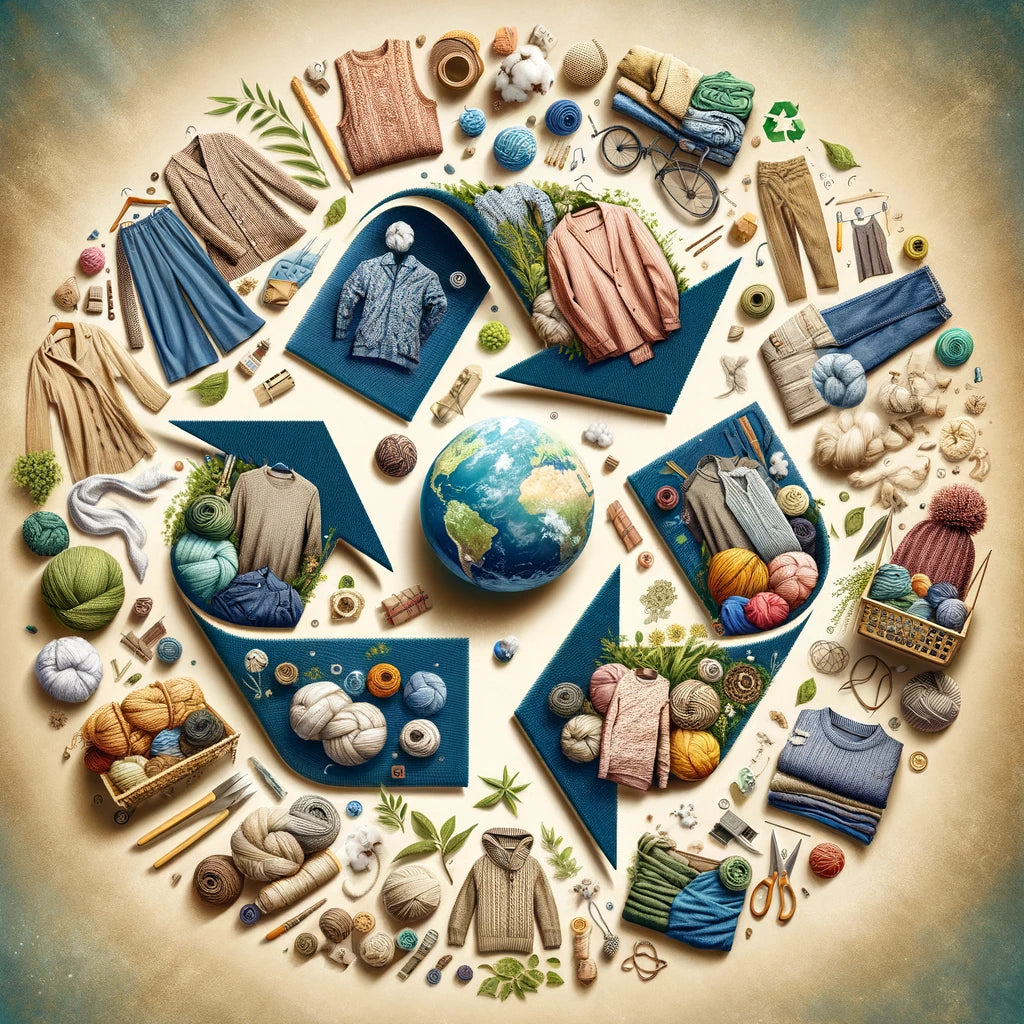
The Green Thread: Unraveling the Benefits of Recycling Clothes
Share
In an era where sustainability isn't just a trend but a neccessity, recycling clothes emerges as a crucial thread in the fabric of eco-friendly living. Particularly, the recycling of clothes made from natural fibers stands out for its ease and profound benefits for both people and our planet. This post delves into why recycling clothes, especially those crafted from natural materials, is a practice we should all weave into our daily lives.
The Natural Advantage
Clothes fashioned from natural fibers such as cotton, linen, wool, silk, and hemp are inherently more recyclable compared to their synthetic counterparts. These materials biodegrade more swiftly and with less environmental impact, sidestepping the long-lasting pollution caused by synthetic fibers. Recycling natural fiber garments not only diminishes waste in landfills but also lessens the demand for raw materials, conserving the earth's precious resources.
Benefits for the Planet
- Reduced Environmental Footprint: Recycling clothes leads to a significant reduction in the environmental footprint of the fashion industry. It diminishes the need for virgin raw materials, which in turn alleviates the strain on natural resources like water and energy required for their production.
- Lowered Greenhouse Gas Emissions: The process of producing new textiles, especially from synthetic fibers, is energy-intensive and contributes to greenhouse gas emissions. Recycling aids in curtailing these emissions, combating climate change.
- Decreased Landfill Waste: Millions of tons of clothing end up in landfills each year, taking decades to decompose, particularly synthetic fabrics. Recycling natural fibers is a step towards diminishing this waste and its associated environmental hazards.
Benefits for People
- Cost Savings: Recycling and repurposing clothes can lead to significant cost savings for consumers. It fosters a culture of reusing and sharing, reducing the need for purchasing new clothes.
- Supports Community Programs: Donating used clothes supports local charities and community programs. It provides clothing to those in need and bolsters employment in the second-hand and recycling sectors.
- Fosters Creativity and Innovation: Recycling old clothes opens up avenues for creativity, encouraging DIY projects and the design of new garments from old ones. This not only lends a unique touch to our wardrobes but also promotes sustainable fashion design practices.
The Green Thread: Unraveling the Benefits of Recycling ClothesHow to Get Involved
Getting involved in recycling clothes is easier than you might think. Begin by sorting your wardrobe to identify natural fiber garments that you no longer need. Donate these to local charities or seek out textile recycling programs either in your area or via mail. Consider upcycling or repurposing clothes at home into new garments or household items. Lastly, when shopping, opt for clothes made from natural fibers and support brands that prioritize sustainability.
Weaving a Sustainable Future
Recycling clothes, particularly those made from natural fibers, is a pivotal step towards a more sustainable and eco-conscious fashion industry. By embracing this practice, we contribute to a healthier planet and a more equitable society. Let's commit to the green thread of recycling clothes, turning the tide one garment at a time.
